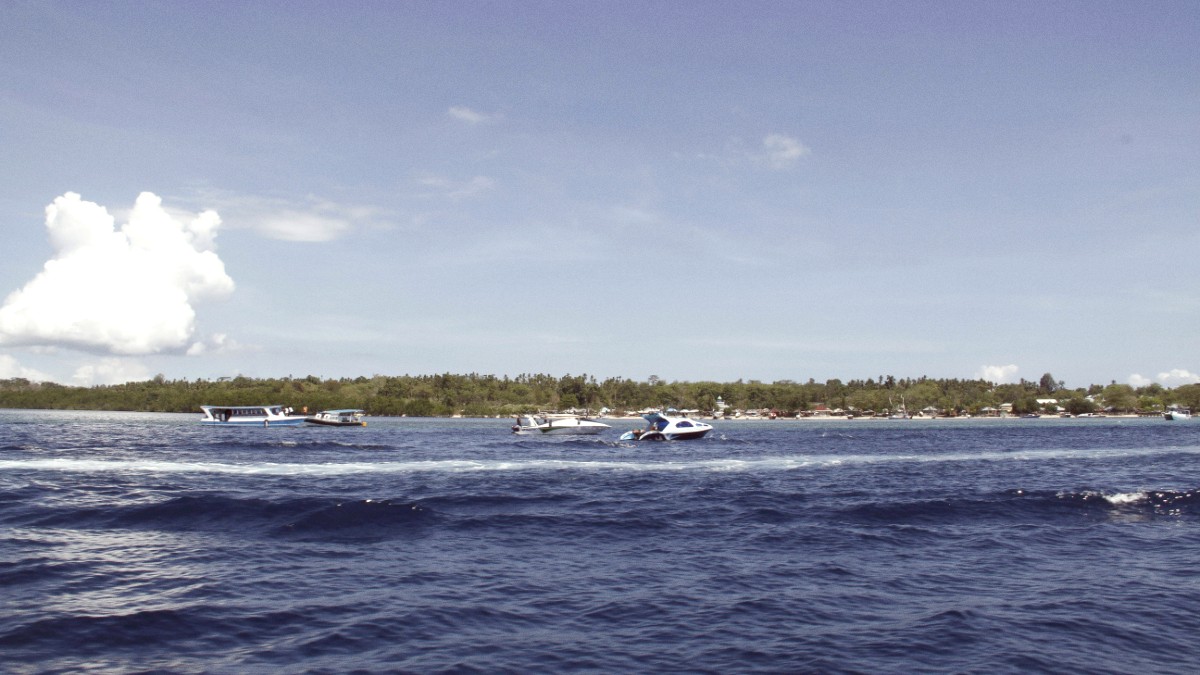
Indonesia
North Sulawesi maintains consistent warmth, with daily temperatures ranging from 25°C to 32°C (77°F to 90°F). Humidity commonly exceeds 80%, contributing to the tropical feel. The year features two main seasons.
Wet Season (November to April): Heavy rainfall characterizes this period. January and February typically see the most intense downpours. Rains often come in short, heavy bursts, especially in the afternoon. Sunny mornings can give way to torrential rain.
Dry Season (May to October): This period offers less frequent and lighter rainfall. July and August often stand as the driest months. Skies are generally clearer, and days are sunnier. This season is preferable for outdoor activities.
July to September presents ideal weather for diving and snorkeling, with calm seas and excellent visibility. Tourist numbers are higher, leading to increased prices for accommodation and tours.
Lower prices for flights and lodging appear during the wet season, especially January and February. Heavy rainfall can disrupt travel plans and visibility for diving. North Sulawesi typically avoids hurricanes; the wet season is defined by monsoon rains.
July - September
Ideal weather for diving/snorkeling, calm seas, excellent visibility, sunny days, perfect for outdoor activities.
Higher prices for accommodation/tours, more crowds at popular dive sites.
May-June, October-November
Favorable weather conditions, fewer crowds, potentially lower prices for flights and lodging. Good dive visibility.
Chance of rain increases towards year-end. Visibility may not be as consistently clear as peak dry season.
December - April
Lowest prices for flights and accommodation. Minimal tourist numbers, lush and green landscapes.
Frequent heavy rainfall, especially Jan-Feb, can disrupt plans. Rain can reduce dive visibility and create muddy trails.
Indonesia presents several entry options for tourists: Visa Exemption (for stays up to 30 days, no extension), Visa on Arrival (VoA) for approximately 92 countries (extendable once for 30 days, fee around USD 35), e-Visa on Arrival (e-VoA) for streamlined online application, and Tourist Visa (B211A) for longer stays (up to 180 days with extensions).
Ensure correct documents upon arrival: Passport (valid for at least 6 months from entry date), Return or Onward Ticket (proof of confirmed departure), and Passport Photos (digital copies prove beneficial for e-VoA or traditional visa applications).
IDR 500,000 (approx. USD 35), payable by credit card or cash.
Proceed to the "Visa on Arrival" counter or directly to immigration if holding an e-VoA.
All travelers submit an electronic Customs Declaration (e-CD) form, preferably online before arrival.
Entry fees apply for protected areas like Bunaken Marine Park and Tangkoko Nature Reserve.
No specific health-related entry rules currently apply, unless from a Yellow Fever risk country.
Daily costs vary based on your travel style, from budget-friendly local experiences to luxury resort stays.
Rp 350,000 - 600,000 (USD 23-40) per day
Rp 800,000 - 1,500,000 (USD 55-100) per day
| Category | Budget | Mid-Range | Luxury |
|---|---|---|---|
| Accommodation (per night) | Rp 70,000 - 300,000 | Rp 350,000 - 800,000 | Rp 900,000+ |
| Meals (per person) | Rp 20,000 - 50,000 | Rp 70,000 - 150,000 | Rp 200,000+ |
| Local Transport (per ride) | Rp 5,000 - 10,000 | Rp 15,000 - 40,000 (Grab/Gojek) | Rp 80,000+ (private taxi) |
Take precautions for common health concerns, know emergency services, and acknowledge local safety norms.
None mandatory for general entry, except for Yellow Fever if arriving from a risk country.
Consult your doctor 4-6 weeks prior: Routine shots, Hepatitis A/B, Typhoid, Rabies, Japanese Encephalitis.
Use strong Insect repellent containing DEET or Picaridin, wear long sleeves/pants, use mosquito nets or AC.
Traveler's Diarrhea:
This is common. Practice good food hygiene: eat only well-cooked food, avoid raw vegetables or unpeeled fruit unless washed with purified water. Drink only bottled or purified water.
Carry Anti-diarrhea medication like Loperamide. Maintain hydration with Oral rehydration salts. LifeStraw or purification tablets are an option for water.
Sunburn & Heatstroke: Use High SPF reef-safe sunscreen, wear a Wide-brimmed hat and Sunglasses. Stay hydrated.
Manado has several hospitals, including Siloam Hospital Manado and Advent Hospital Manado, offering better facilities than rural areas. Serious emergencies may warrant evacuation to Singapore or Kuala Lumpur.
Readily available in Manado for common medications. Pharmacists can offer advice for minor ailments.
Dial 112 for general emergencies (police, fire, ambulance). Dial 110 for Police, 118 for Medical Emergency/Ambulance, 115 for Search and Rescue (BASARNAS). Response times may vary.
North Sulawesi generally is safe for tourists. Petty crime, like pickpocketing and bag snatching, can occur in crowded areas (markets, bus stations), especially in Manado.
Obtaining comprehensive travel insurance before your trip is highly advisable. Confirm it covers:
Including emergency medical evacuation, and medical treatment. Insubuy and SafetyWing options available.
Trip cancellation or interruption due to unforeseen circumstances. Look into World Nomads for adventurous plans.
Lost or stolen luggage and valuables. Ensure coverage for planned activities like scuba diving to your planned depth.